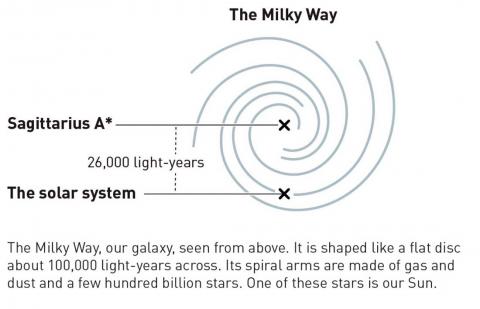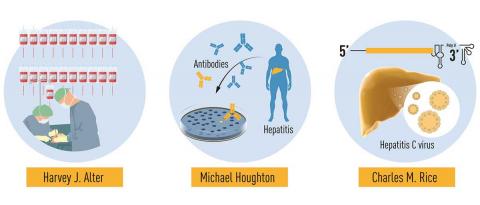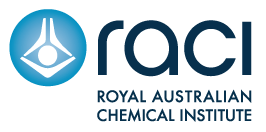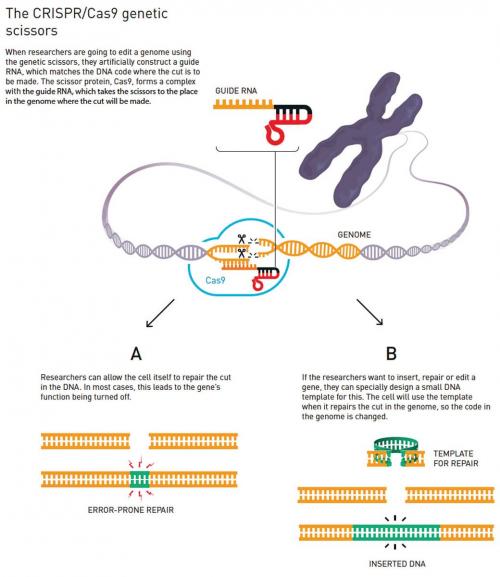The Royal Swedish Academy of Sciences has decided to award the 2020 Nobel Prize in Chemistry to Emmanuelle Charpentier (Max Planck Unit for the Science of Pathogens, Berlin, Germany) and Jennifer A. Doudna (University of California, Berkeley, USA) ‘for the development of a method for genome editing’.
Charpentier and Doudna have discovered one of gene technology’s sharpest tools: the CRISPR-Cas9 genetic scissors. Using these, researchers can change the DNA of animals, plants and microorganisms with extremely high precision. This technology has had a revolutionary impact on the life sciences, is contributing to new cancer therapies and may make the dream of curing inherited diseases come true.
Researchers need to modify genes in cells if they are to find out about life’s inner workings. This used to be time-consuming, difficult and sometimes impossible work. Using the CRISPR-Cas9 genetic scissors, it is now possible to change the code of life over the course of a few weeks.
There is enormous power in this genetic tool, which affects us all. It has not only revolutionised basic science, but also has resulted in innovative crops and will lead to groundbreaking new medical treatments, said Claes Gustafsson, chair of the Nobel Committee for Chemistry.
As so often in science, the discovery of these genetic scissors was unexpected. During Charpentier’s studies of Streptococcus pyogenes, one of the bacteria that cause the most harm to humanity, she discovered a previously unknown molecule, tracrRNA. Her work showed that tracrRNA is part of bacteria’s ancient immune system, CRISPR-Cas, which disarms viruses by cleaving their DNA.
Charpentier published her discovery in 2011. The same year, she initiated a collaboration with Doudna, an experienced biochemist with vast knowledge of RNA. Together, they succeeded in recreating the bacteria’s genetic scissors in a test tube and simplifying the scissors’ molecular components so they were easier to use.
They then reprogrammed the genetic scissors. In their natural form, the scissors recognise DNA from viruses, but Charpentier and Doudna proved that they could be controlled so that they can cut any DNA molecule at a predetermined site. Where the DNA is cut, it is then easy to rewrite the code of life.
Since Charpentier and Doudna discovered the CRISPR-Cas9 genetic scissors in 2012, their use has exploded. This tool has contributed to many important discoveries in basic research, and plant researchers have been able to develop crops that withstand mould, pests and drought. In medicine, clinical trials of new cancer therapies are underway, and the dream of being able to cure inherited diseases is about to come true. These genetic scissors have taken the life sciences into a new epoch and, in many ways, are bringing the greatest benefit to humankind.
Charpentier was born in 1968 in Juvisy-sur-Orge, France. She obtained her PhD in 1995 from Institut Pasteur, Paris. She is Director of the Max Planck Unit for the Science of Pathogens.
Doudna was born in 1964 in Washington, DC, USA. She obtained her PhD in 1989 from Harvard Medical School, Boston. She is Professor at the University of California, Berkeley, and Investigator, Howard Hughes Medical Institute.
Other 2020 Nobel prizes for science
Physics

©Johan Jarnestad/The Royal Swedish Academy of Sciences
The 2020 Nobel Prize in Physics is awarded with one half to Roger Penrose (University of Oxford) ‘for the discovery that black hole formation is a robust prediction of the general theory of relativity’; and the other half jointly to Reinhard Genzel (Max Planck Institute for Extraterrestrial Physics, Garching, Germany and University of California, Berkeley) and Andrea Ghez (University of California, Los Angeles) ‘for the discovery of a supermassive compact object at the centre of our galaxy’.
Physiology or Medicine

© The Nobel Committee for Physiology or Medicine. Illustrator: Mattias Karlén
The 2020 Nobel Prize in Physiology or Medicine is awarded jointly to Harvey J. Alter (NIH Clinical Center Department of Transfusion Medicine, Maryland), Michael Houghton (University of Alberta, Edmonton) and Charles M. Rice (Rockefeller University, New York) ‘for the discovery of Hepatitis C virus’.



